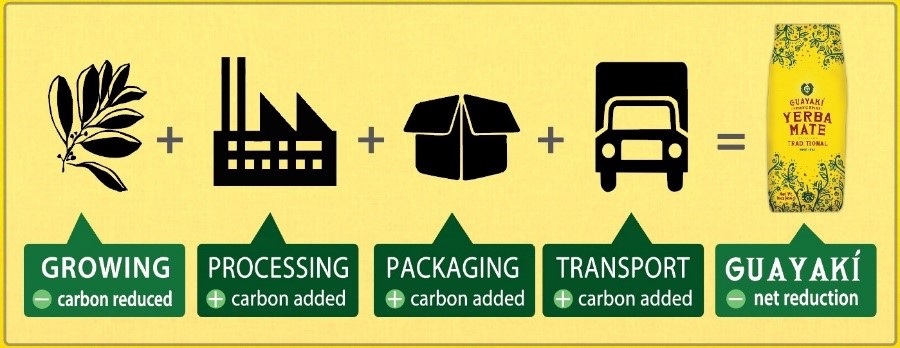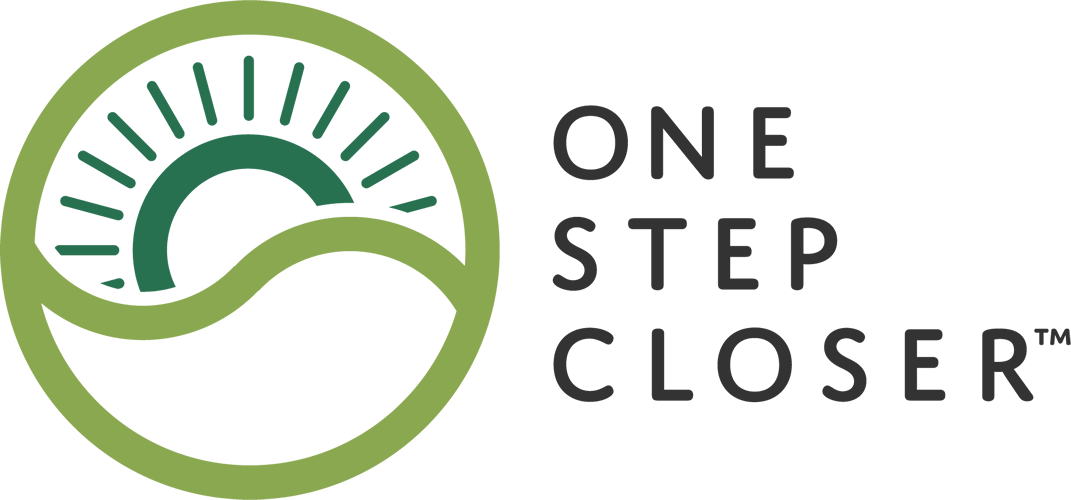January 10, 2019 by dev_team
CARBON NEW NEGATIVE FOR 22 YEARS: HOW DID GUAYAKI DO IT?
Originally posted by the Climate Collaborative on January 04, 2019
In anticipation of the 2019 National Co+op Grocers Climate Collaborative Awards, we’re talking with the leaders of our 2018 award-winning companies to learn a little bit more about what drives their climate leadership.
Our fourth interview is with Chris Mann, CEO and Chairman of the Gourd at Guayaki, winner of the 2018 Outstanding Company Value Chain Engagement Award (View our previous interviews with Organic Valley, Lotus Foods and Community Food Co-op).

Guayaki received the award for its 22-year record of being a carbon net negative company, which the company achieved by working toward reductions within its direct operations and across the company’s value chain. Read the full interview here!
Congratulations on your award! How did you decide to start prioritizing climate action in your supply chain—as far back as 22 years ago?
The largest carbon impact of a food or beverage company often occurs at the growing stage. Guayaki has been prioritizing carbon drawdown during this initial stage since 1996 by sourcing yerba mate grown under the shade of forests. The significant amount of carbon sequestered by forests counterbalances the carbon footprint of the rest of our operations, with packaging and transportation representing our biggest impacts. Our mission to regenerate forests has always been our guide, and this focus enables Guayaki to be net carbon negative.
Packaging is the largest contributor to Guayaki’s carbon emissions. We remain constrained in this area by the fact that we offer single serve beverages in cans and bottles, in addition to loose leaf yerba mate in home-compostable bags. Our packaging’s recycled content and recyclability are tied to outside forces such as consumer behavior, industry availability, and local infrastructure. Nevertheless, we have ongoing initiatives to evaluate our packaging and find opportunities for improvement and collaboration. For example, last year we saved 44,000 pounds of packaging by eliminating our mate bag string and overwrap.
Has there been an experience leading this work that stands out to you, or an aspect that makes you particularly proud?
We’re always looking for opportunities to do things better. A couple of years ago we decided to take control of our direct store delivery distribution and create a 100% fossil-fuel-free fleet. We now deliver Guayaki Yerba Mate to 45 cities in the United States and Canada using the largest commercial fleet of all-electric Chevy Bolts. This area of our business is rapidly growing, so we brought on an anti-recidivism activist to manage the hiring of new drivers. We’ve hired over 30 drivers that have been affected by the prison system. They often face the hardest barriers to finding meaningful employment, so these living wage jobs give them an opportunity to rebuild their lives.
What inspires you to pursue climate leadership? Was there a defining moment that changed how you approached climate change?
From the very beginning, we looked at business as a critical lever for driving change. Though we weren’t specifically aware of climate change in 1996, we did understand the value of stewarding and restoring rainforests and working with forest communities. The beautiful thing about climate leadership is that it is an umbrella for the entire environmental and social regeneration movement. The more we know, the more we realize that time is of the essence and the only way that we can thrive as a collaborative species on this planet is to accelerate our work and inspire billions to step up their game!
Beyond your supply chain work, could you share your vision for the future of climate action in the natural foods industry?We know more now about the potential of global regenerative food systems to reverse climate change. As more companies in the natural foods industry implement soil health measures and collaborate to define regenerative outcomes, the future scaling of these pilot projects will bring a significant carbon benefit.
Customer demand for supply chain transparency continues to grow, and new technologies have the potential to drive deeper engagement in a product’s carbon footprint. Blockchain technology can bring greater awareness and efficiency to a company’s carbon offsets, as well as a more equitable distribution of benefits to small-holder farmers. Advancing technology in electric vehicles and last-mile delivery also gives companies more opportunity to innovate with distribution.
Supporting all of these efforts is responsible for public policy at the state and local levels. Campaigns like We Are Still In and events like the Global Climate Action Summit in San Francisco are guiding us to engage in and advance climate policy. However, we cannot wait decades for the examples set by the natural foods industry to take hold and become adopted. We need to scale up action in a big way now, and that is only going to happen through collaboration across industries.
Thank you! And lastly, what advice would you give companies who hope to have a similar positive impact?
For companies wanting to make a real impact, start with a regenerative business model. Decide what you want to change in the world and weave that mechanism for change into your business. Become a benefit corporation (B Corporation) to protect the legacy of your vision and choose investors who honor that commitment. Build a team of employees and suppliers who are aligned around working collectively to make that change happen.
Remember that you’ll be working against extractive economic and social forces that will bend your will so stay true to your vision. Think big because we need disruptive solutions. Think global and local at the same time. And because regeneration starts with you, make self-reflection and regenerative thinking a priority. Then go for it!
